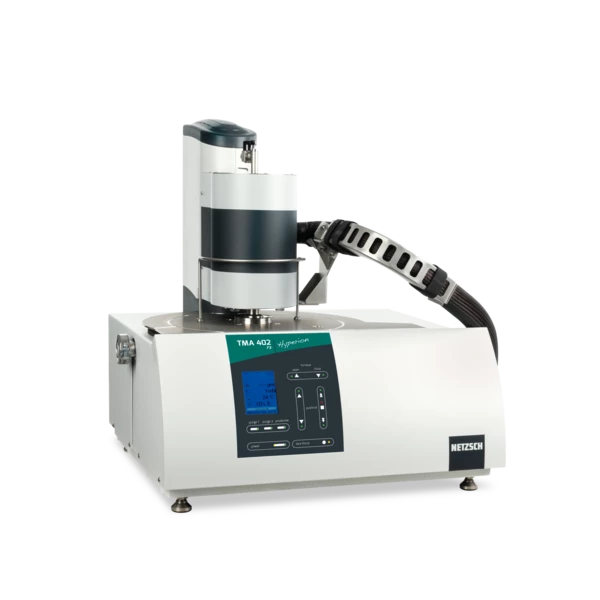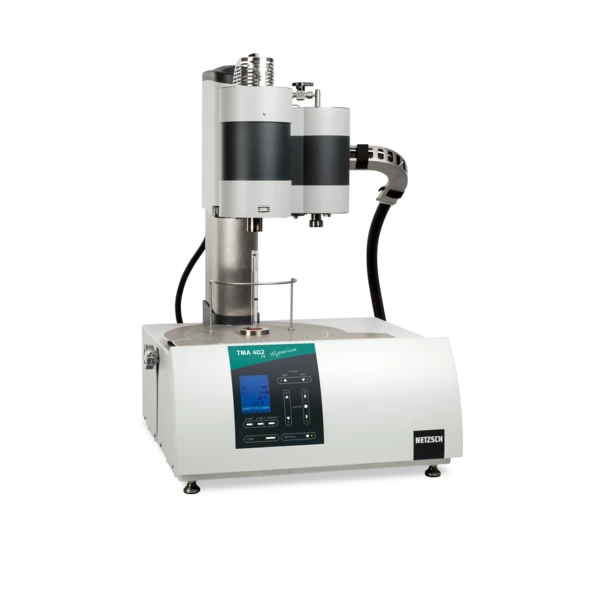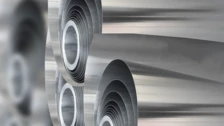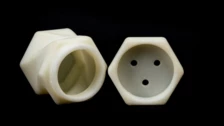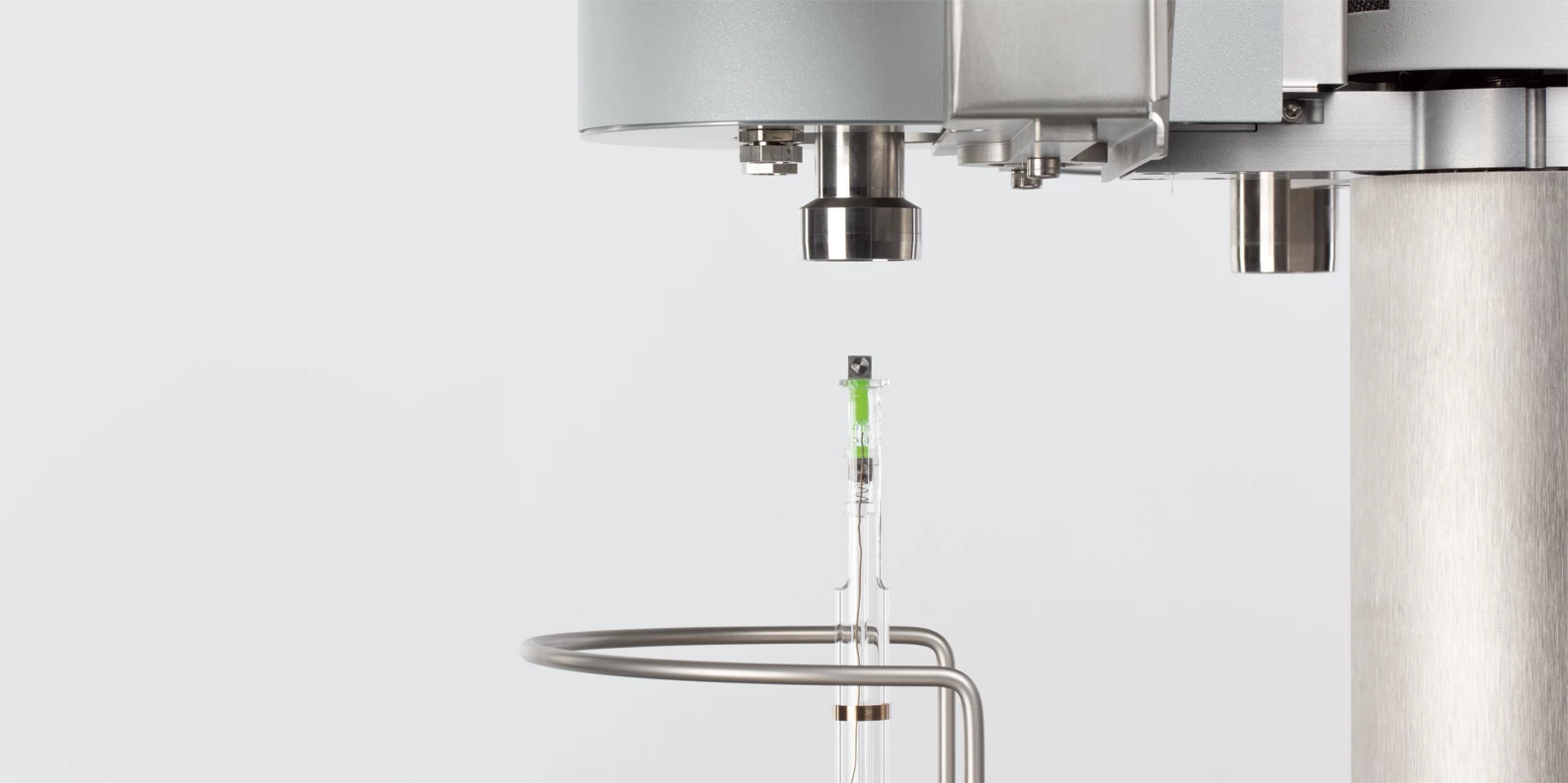
TMA
Analiza termomechaniczna
Do pomiaru zarówno właściwości termicznych, jak i mechanicznych stosuje się analizator termomechaniczny (TMA). Zależne od temperatury zmiany wymiarów ciał stałych, cieczy i past określają przydatność danego materiału do danego zastosowania lub dostarczają informacji o składzie, strukturze i warunkach przetwarzania.
Wiele materiałów ulega zmianom właściwości termomechanicznych podczas ogrzewania lub chłodzenia. Na przykład, oprócz rozszerzalności cieplnej mogą wystąpić zmiany fazowe, etapy spiekania lub zmiękczania.
Analizy TMA mogą zatem zapewnić cenny wgląd w skład, strukturę, warunki produkcji lub możliwości zastosowania różnych materiałów. Zakres zastosowań przyrządów do analizy termomechanicznej rozciąga się od kontroli jakości do badańarch i rozwoju. Typowe dziedziny obejmują tworzywa sztuczne i elastomery, farby i barwniki, kleje, folie i włókna, ceramikę, szkło, metale i materiały kompozytowe.
Analiza termomechaniczna (TMA) określa zmiany wymiarów ciał stałych, cieczy lub materiałów o konsystencji pasty w funkcji temperatury i/lub czasu pod wpływem określonej siły mechanicznej (DIN 51005, ASTM E831, ASTM D696, ASTM D3386, ISO 11359 - części 1-3). Jest ona ściśle związana z dylatometrią (dylatometr pionowy), która określa zmianę długości próbek przy pomijalnym obciążeniu (np. DIN 51045).
Oprócz liniowej rozszerzalności cieplnej i współczynnika rozszerzalności cieplnej, TMA może być również stosowany do badania temperatur przemian fazowych, temperatur spiekania, stopni skurczu, temperatur zeszklenia, dylatometrycznych punktów mięknienia, rozszerzalności objętościowej, zmian gęstości, rozwarstwienia i kinetyki spiekania.
TMA 402 F3 Hyperion® Edycja polimerów
Analiza termomechaniczna - TMA - dostosowana do zastosowań niskotemperaturowych
Polimery ulegają zmianom właściwości termomechanicznych podczas ogrzewania i chłodzenia. Analizy TMA mogą dać wgląd w orientację molekularną i efekty hartowania podczas chłodzenia. Pozwala to na projektowanie klejów i innych połączeń hybrydowych oraz kontrolę jakości folii termokurczliwych.
TMA 402 F1 /F3 Hyperion®
Analizator termomechaniczny - dylatometr pionowy
Modułowa koncepcja z wymiennymi piecami (kompatybilnymi z innymi urządzeniami NETZSCH ) umożliwia łatwą i ekonomiczną rozbudowę i modernizację. Przepływy gazu z maksymalnie 4 MFC, sterowane za pomocą oprogramowania z programowalną zmianą atmosfery do analizy np. zachowania utleniania bez ręcznej obsługi zaworu
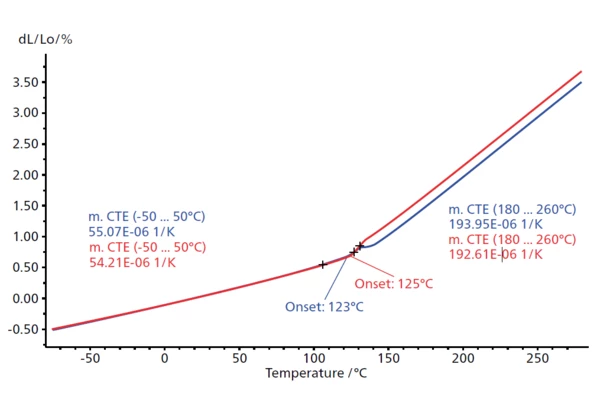
Rozszerzalność cieplna
Liniowa rozszerzalność cieplna jest ważną zmienną do oceny zachowania wymiarowego materiału w odpowiedzi na zmianę temperatury.
Wykres przedstawia rozszerzalność cieplną (dL/L0 w %) żywicy epoksydowej w zakresie od -70°C do 270°C. Podczas pierwszego ogrzewania (niebieska krzywa), początek przejścia szklistego (Tg) występuje w temperaturze 123°C. Podczas drugiego ogrzewania (czerwona krzywa), początek Tg jest nieznacznie przesunięty do 125°C. Przesunięcie to może być spowodowane efektami relaksacji lub utwardzania wtórnego.
Literatura dotycząca zastosowań
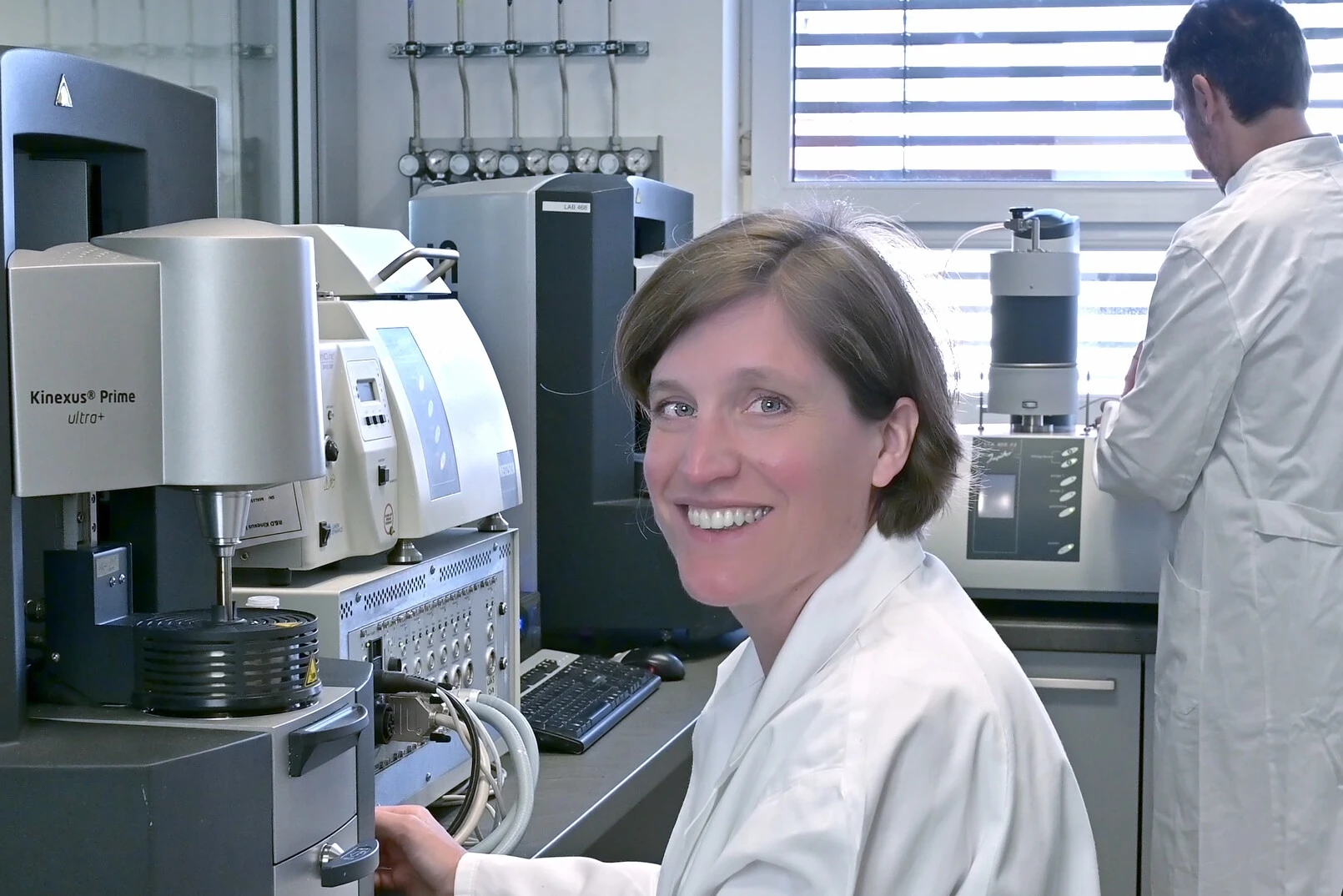
POSZUKIWANY POMIAR?
Nasze laboratorium aplikacyjne NETZSCH świadczy usługi testowania kontraktowego dla szerokiego zakresu branż i ośrodków badawczycharch. Jest ono wyposażone w najnowocześniejsze przyrządy badawcze umożliwiające przeprowadzanie różnorodnych pomiarów analizy termicznej.
Skonsultuj się z ekspertami z naszego laboratorium aplikacyjnego, aby wybrać metodę pomiarową najlepiej dostosowaną do Twoich konkretnych potrzeb.
